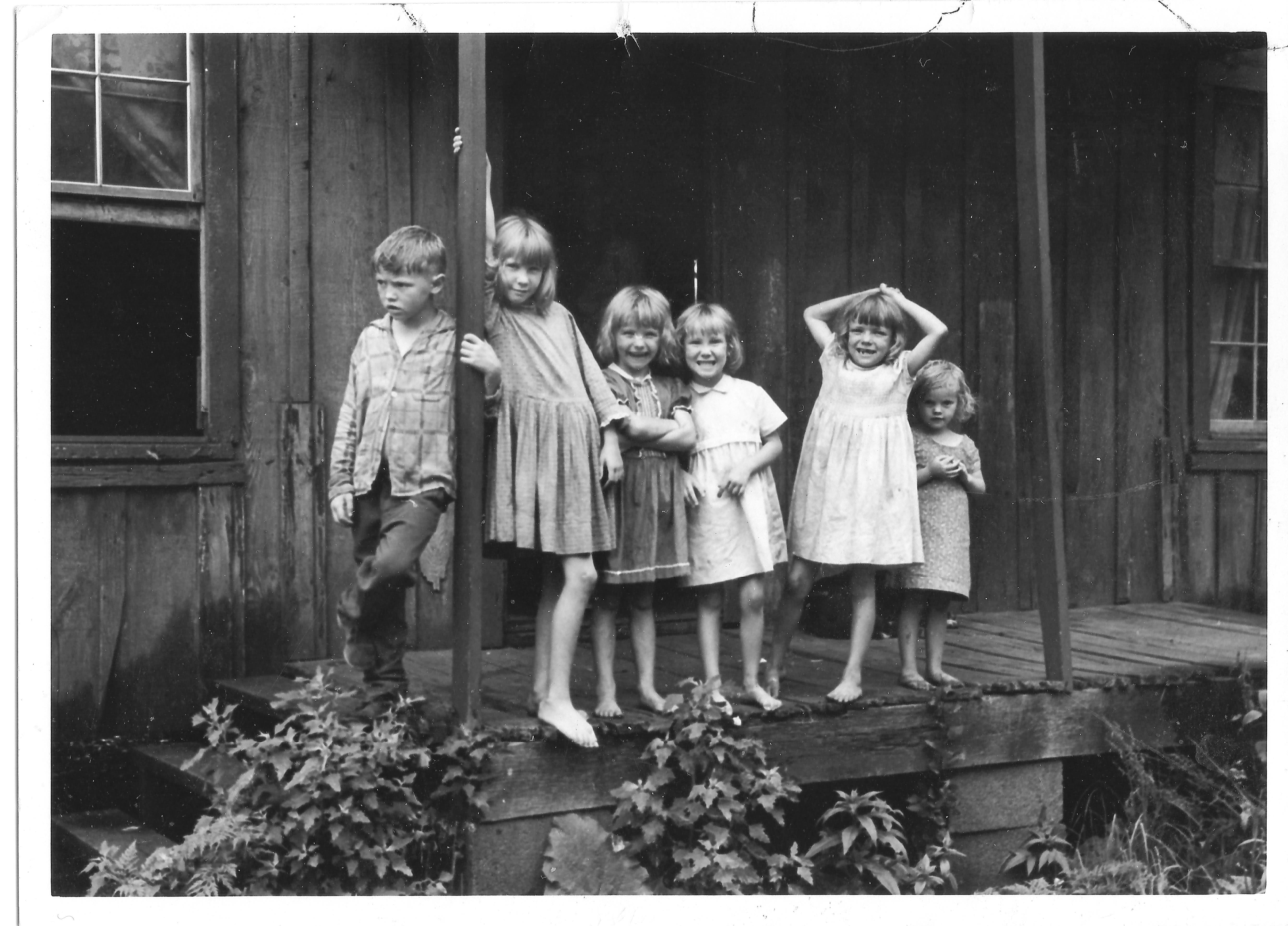Stare…
—Walker Evans’ advice to young artists
So here’s a board-and-batten house—
a wall of planks with ragged ends
behind the windows’ splitting sills—
and here five siblings form a row
straggling across the wooden porch.
The boy frowns down and looks away,
his sisters pose for me, the tallest
raises her arm, juts her left hip,
hooks her bare toes over the edge.
Two first-grade girls, gap-toothed, grin wide,
and one, her elbows high, leans right
against the smallest child, hair chopped
in crooked bangs, barefoot, sack dress.
Say nine, twelve, six, six, and three?
(It will be years before I frame
family snapshots of my own.)
Road dust rolls red as I size up
more farms, more faded county seats
with barbershops, small luncheonettes,
thrift shops that sell used shoes, old clothes,
worn pots and pans. I shoot them all
as if I rode with Walker Evans
in ninety-eight degrees. At night
I wonder how what’s saved was spared,
what’s razed was damned to disappear:
who held the straightedge, drew the lines,
called out neglect or preservation?
Wythe County in July—Stare.
Day after day. It is the way
to educate your eye and more.
Stare, pry, listen, eavesdrop.
August, I turn back north toward home
still steering down those rural roads,
arriving at that weathered house.
No one has heard of Walmart yet,
though down in Rogers, Arkansas,
Sam Walton’s launched his Discount City.
Scouting locations in his plane,
he aims to move into Missouri,
he plans to expand in Oklahoma,
aims to discount the material
remains of small towns everywhere.
Dolores Hayden is the author of two poetry collections, American Yard and Nymph, Dun, and Spinner. Recent poems appear in Poetry, Raritan, Shenandoah, Ecotone, and Architrave. She is a professor at Yale and author of The Power of Place: Urban Landscapes as Public History. Her website is www.DoloresHayden.com.




